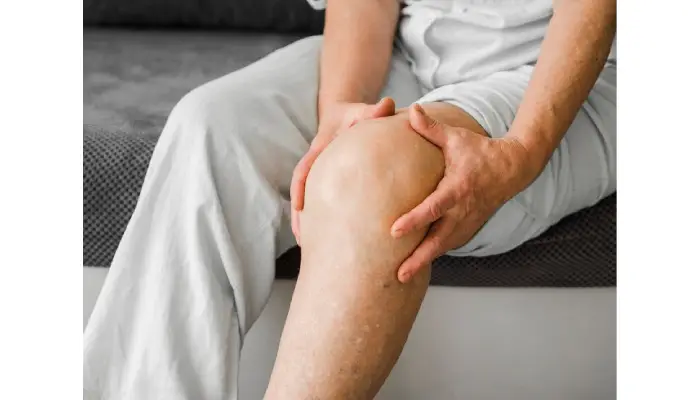New Orleans Tendonitis, a painful inflammation of the tendons, can be a debilitating condition that significantly impacts daily activities. In New Orleans, residents have access to a variety of effective treatment options designed to relieve tendonitis and promote recovery. Treatments range from conservative approaches, such as rest and physical therapy, to more advanced options like corticosteroid injections or platelet-rich plasma (PRP) therapy. Physical therapy often involves specific exercises aimed at strengthening the affected tendon and improving flexibility, while PRP therapy uses the patient’s own blood to accelerate healing. Additionally, anti-inflammatory medications and lifestyle modifications can play a crucial role in managing pain and reducing inflammation. By exploring these treatments, individuals in New Orleans can find the relief they need to restore their quality of life and return to normal activities.
Discover Top Therapies For New Orleans Tendonitis
New Orleans Tendonitis offers a variety of therapies specifically designed to address tendonitis. Among the most popular are physical therapy, acupuncture, and extracorporeal shockwave therapy (ESWT). Physical therapy is highly regarded for its ability to strengthen muscles around the affected tendon, which can reduce strain and prevent further injury. Acupuncture, a traditional Chinese medicine technique, involves inserting thin needles into specific points on the body to alleviate pain and promote healing. ESWT, a newer treatment option, uses shockwaves to stimulate healing in damaged tendons, encouraging faster recovery. Other therapies, such as massage therapy and chiropractic care, can also be beneficial in relieving pain and improving mobility. With these varied options available, New Orleans residents suffering from tendonitis can choose the therapy that best suits their individual needs and preferences.

Managing New Orleans Tendonitis: Your Essential Guide
Managing New Orleans tendonitis requires a comprehensive approach that combines medical treatment with lifestyle adjustments. The first step is obtaining an accurate diagnosis, which typically involves a physical examination and imaging tests like ultrasound or MRI. Once diagnosed, patients can work with healthcare providers to develop a personalized treatment plan. This plan may include rest, ice, compression, and elevation (RICE) to reduce inflammation and pain. Over-the-counter or prescription anti-inflammatory medications can also help manage symptoms. In addition to medical treatment, lifestyle changes such as modifying activities that exacerbate the condition, improving ergonomics at work or home, and incorporating regular stretching and strengthening exercises into daily routines are essential. For chronic or severe cases, consulting a specialist in New Orleans who can offer advanced treatment options may be necessary. By following this guide, individuals can effectively manage tendonitis and reduce the risk of recurrence.
New Orleans Tendonitis: Signs, Symptoms, And Solutions
Understanding the signs and symptoms of tendonitis is crucial for early diagnosis and effective treatment. In New Orleans, tendonitis commonly affects individuals who engage in repetitive activities, such as athletes, musicians, and manual laborers. The primary symptoms include pain, tenderness, and stiffness in the affected area, often worsening with movement. Swelling and warmth around the tendon may also occur. If left untreated, tendonitis can lead to more severe conditions like tendon rupture, which may require surgical intervention. Fortunately, several solutions are available to address tendonitis symptoms. Early treatment typically involves rest, ice, and over-the-counter pain relievers to reduce inflammation and alleviate pain. For more persistent cases, physical therapy, corticosteroid injections, or PRP therapy may be recommended. By recognizing the symptoms early and seeking appropriate treatment, individuals in New Orleans can prevent the condition from worsening and maintain their active lifestyles.
Best Clinics For New Orleans Tendonitis Recovery
Finding the right clinic is essential for effective tendonitis recovery in New Orleans. The city is home to several top-rated clinics that specialize in treating tendonitis and other musculoskeletal conditions. These clinics offer a range of services, including diagnostic imaging, physical therapy, and advanced treatment options like PRP therapy and ESWT. Some of the best clinics in New Orleans are affiliated with major medical centers, ensuring access to cutting-edge treatments and experienced specialists. Patients can expect comprehensive care, from initial diagnosis to post-treatment rehabilitation, aimed at achieving the best possible outcomes. The clinic staff often includes orthopedic surgeons, physical therapists, and sports medicine specialists who work together to create personalized treatment plans tailored to each patient’s needs. With a focus on patient-centered care, these clinics are dedicated to helping individuals recover from tendonitis and regain their mobility and function.
New Orleans Tendonitis: Causes And Prevention Tips
Tendonitis in New Orleans is often caused by repetitive motions or overuse of specific tendons, particularly in sports or occupations that require frequent movement. Common causes include activities like running, swimming, and weightlifting, as well as jobs that involve repetitive motions such as typing or assembly line work. Age can also be a factor, as tendons lose elasticity and strength over time, making them more susceptible to injury. To prevent tendonitis, it is important to incorporate regular stretching and strengthening exercises into your routine, particularly for muscles and tendons that are frequently used. Maintaining proper posture and using ergonomic equipment at work can also reduce the risk of developing tendonitis. Additionally, taking breaks during repetitive activities and gradually increasing the intensity of physical exercise can help prevent overuse injuries. By understanding the causes of tendonitis and following these prevention tips, New Orleans residents can reduce their risk of developing this painful condition.
New Orleans Tendonitis: How To Find Lasting Relief?
Finding lasting relief from tendonitis in New Orleans involves a multi-faceted approach that addresses both the symptoms and underlying causes of the condition. For many, physical therapy plays a key role in achieving long-term relief, as it strengthens the muscles around the affected tendon and improves overall flexibility. In more severe cases, advanced treatments like PRP therapy or corticosteroid injections may be necessary to reduce inflammation and promote healing. Lifestyle changes, such as modifying activities that strain the tendon and incorporating regular stretching exercises, are also crucial for preventing recurrence. Additionally, maintaining a healthy diet and staying hydrated can support tendon health and aid in recovery. For those struggling with chronic tendonitis, working closely with a specialist in New Orleans can provide access to the most effective treatments and ensure a personalized approach to care. By taking these steps, individuals can find lasting relief from tendonitis and enjoy a pain-free, active lifestyle.
Conclusion
New Orleans Tendonitis is a common condition that can significantly impact quality of life, but with the right approach, it is manageable. In New Orleans, a variety of effective treatment options, therapies, and clinics are available to help individuals find relief from tendonitis. Understanding the signs, symptoms, and causes of tendonitis, along with implementing preventive measures and lifestyle changes, can greatly reduce the risk of developing or exacerbating the condition. Whether through conservative treatments like physical therapy and anti-inflammatory medications or more advanced options like PRP therapy and corticosteroid injections, those suffering from tendonitis in New Orleans have access to comprehensive care that can help them regain mobility and function. By seeking early diagnosis and following a personalized treatment plan, individuals can find lasting relief and return to their daily activities with renewed confidence and comfort.
